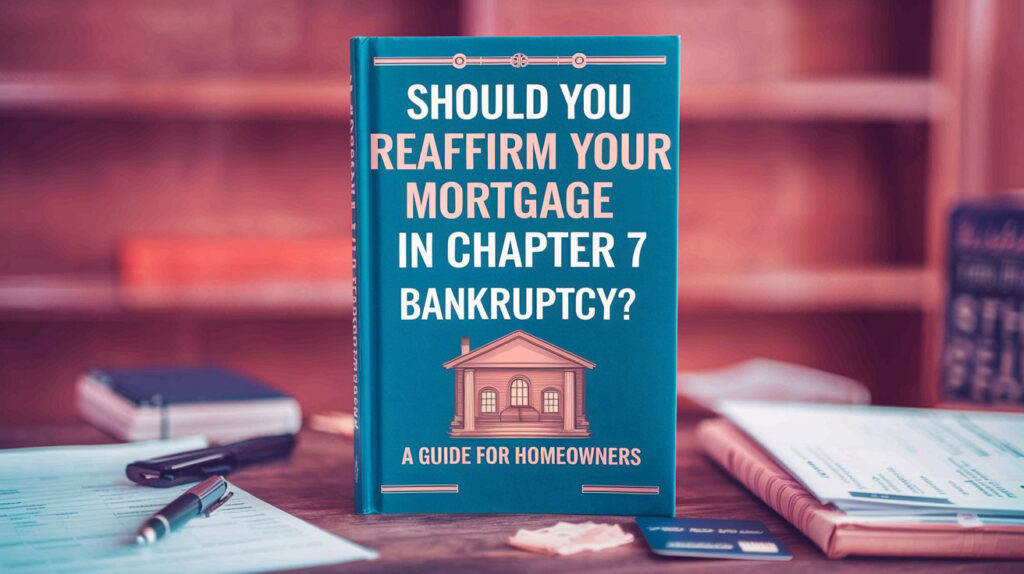
Illinois homeowners filing for Chapter 7 bankruptcy often face a critical decision regarding their mortgage. It’s essential to understand that Illinois offers limited homeowner exemptions: $15,000 for a single homeowner and $30,000 for a married couple. This typically means you may not have much equity in your home.
When filing for Chapter 7 bankruptcy, you have two options for handling your mortgage:
- Reaffirm the mortgage contract
- Do not reaffirm the mortgage contract
Mortgage lenders often request that homeowners sign a reaffirmation agreement. This agreement can include first mortgages, second mortgages, junior mortgages, home equity loans, or any other loan secured by a lien on their property.
Pros and Cons of Reaffirming Your Mortgage
Pros:
- Credit reporting: Your lender will report to credit bureaus that your mortgage is current, which may help improve your credit score.
- Clear communication: You can continue communicating with your lender and making payments directly at your local bank branch.
- Credit benefits: On-time payments will appear on your credit report, which can aid in rebuilding credit. However, missed or late payments will also be reported.
- Monthly statements: You will resume receiving regular billing statements, helping you stay on top of payments.
Cons:
- Deficiency judgments: After your Chapter 7 discharge, the mortgage company can obtain a deficiency judgment against you if you fall behind on payments, leading to foreclosure.
- Walk-away option: If you do not reaffirm the mortgage, you retain the option to walk away from the property without being responsible for future payments.
Can You Refinance Without Reaffirming Your Mortgage?
Even if you choose not to reaffirm your mortgage, refinancing is still possible. If your lender doesn’t cooperate, mortgage brokers can often help you obtain the necessary payoff balances and other details.
Our Recommendation
At Robert J. Adams & Associates, we generally do not recommend reaffirming mortgages. However, the final decision is yours, and we will support whichever route you choose.
It’s important to note that mortgage companies usually do not send reaffirmation agreements directly to our office. If you wish to reaffirm your mortgage, you will need to request an agreement from your lender.
The Lawyer’s Role in Reaffirmation
When you agree to reaffirm a debt—such as a mortgage or car loan—your lawyer must certify that reaffirming the debt will not create undue financial hardship. This is based on the Income and Budget schedules filed in your bankruptcy case, which must show that you have sufficient income to cover the reaffirmed debt after your discharge.
